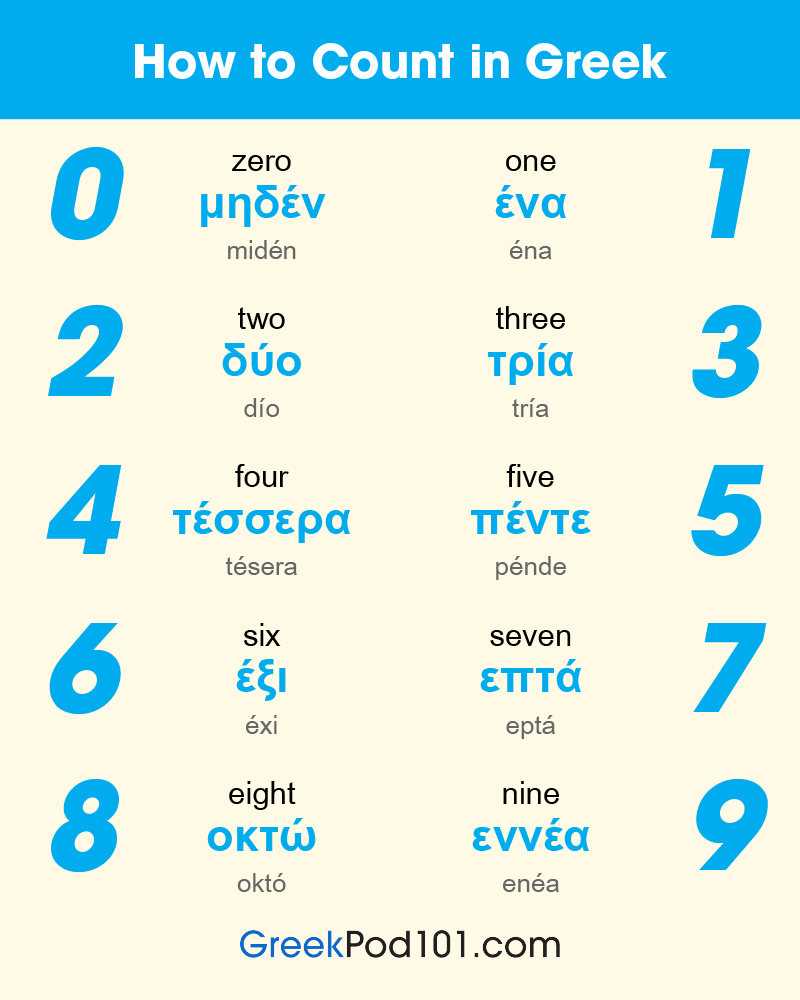How do you say dates in Greek? And how to write dates in Greek numerals?
Being able to understand, read, and write dates in Greek can be quite tricky. Even things as simple as purchasing a ticket or setting an appointment may confuse novice Greek learners if they’re not familiar with Greek dates.
But don’t worry! We’ve got your back!
By the time you finish this guide, you’ll be able to learn how to read and write the dates, the months, the years, and the days of the week in Greek. You’ll also have a much clearer idea of how dates in modern Greek work.
This is an essential chapter in language learning, as it will be useful whether you’re visiting Greece for vacation or for business.
Ready?
Let’s begin!
Table of Contents
- How Dates are Usually Written and Read in Greek
- Reading and Writing Years in Greek
- Reading and Writing Months in Greek
- Reading and Writing Days in Greek
- Reading and Writing Dates in Greek
- Arranging a Date or an Appointment in Greek
- Must-Know Phrases about Dates in Greek
- Conclusion: How GreekPod101 Can Help You Master Greek
1. How Dates are Usually Written and Read in Greek
We’ll start with how to write dates in Greek, and how to read them.
Dates written in Greek typically follow this format: [day] [month] [year].
For the fields [day] and [year], cardinal numbers can be used. However, when it’s the first day of the month, for the field [day], we use the ordinal number.
The field [month] can either include the name of the month in the genitive case, or the corresponding number of the month as an ordinal number and in the genitive case.
Here’s a useful vocabulary compilation, including all the basic words for describing dates:
- ημέρα (iméra) — “day”
- μήνας (mínas) — “month”
- έτος (étos) — “year” [formally]
- χρονιά (hroniá) — “year” [informally]
- ημερομηνία (imerominía) — “date”
- ημερομηνία γέννησης (imerominía yénisis) — “birth date”
- εβδομάδα (evdomáda) — “week”
- σήμερα (símera) — “today”
- αύριο (ávrio) — “tomorrow”
- μεθαύριο (methávrio) — “the day after tomorrow”
- χθες (hthes) — “yesterday”
- προχθές (prohthés) — “the day before yesterday”
2. Reading and Writing Years in Greek
Saying the years in Greek can be tricky. In fact, the learner should have studied numbers in Greek in depth before trying to pronounce the years in Greek correctly.
In need of a quick reminder?
Check out our explanatory videos on Greek Numbers 1-10 and on Greek Numbers 11-100.
Here’s a hint: To say the years in Greek correctly, break down the year to its components, as shown in
the examples below:
- Year: 1990
- Greek: χίλια (1000) + εννιακόσια (900) + ενενήντα (90)
- Romanization: hília + eniakósia + enenínda
- Year: 2008
- Greek: δύο χιλιάδες (2000) + οκτώ ( 8 )
- Romanization: dío hiliádes + októ
- Year: 2019
- Greek: δύο χιλιάδες (2000) + δεκαεννιά (19)
- Romanization: dío hiliádes + dekaeniá
3. Reading and Writing Months in Greek
Months in Greek are easy to learn, since they’re quite similar to their English names.
Here, you can find the names of all months in Greek:
- Ιανουάριος (Ianuários) — “January”
- Φεβρουάριος (Fevruários) — “February”
- Μάρτιος (Mártios) — “March”
- Απρίλιος (Aprílios) — “April”
- Μάιος (Máios) — “May”
- Ιούνιος (Iúnios) — “June”
- Ιούλιος (Iúlios) — “July”
- Αύγουστος (Ávgustos) — “August”
- Σεπτέμβριος (Septémvrios) — “September”
- Οκτώβριος (Októvrios) — “October”
- Νοέμβριος (Noémvrios) — “November”
- Δεκέμβριος (Dekémvrios) — “December”
However, most commonly, months will be in the genitive case due to Greek syntax. Therefore, below you can find all the months in genitive case, as well.
- Ιανουαρίου (Ianuaríu) — “January’s”
- Φεβρουαρίου (Fevruaríu) — “February’s”
- Μαρτίου (Martíu) — “March’s”
- Απριλίου (Aprilíu) — “April’s”
- Μαΐου (Maíu) — “May’s”
- Ιουνίου (Iuníu) — “June’s”
- Ιουλίου (Iulíu) — “July’s”
- Αυγούστου (Avgústu) — “August’s”
- Σεπτεμβρίου (Septemvríu) — “September’s”
- Οκτωβρίου (Oktovríu) — “October’s”
- Νοεμβρίου (Noemvríu) — “November’s”
- Δεκεμβρίου (Dekemvíu) — “December’s”
4. Reading and Writing Days in Greek
Days in Greek follow a numerical pattern. Κυριακή (Sunday) is linguistically perceived as the first day of the week. It emerges from the adjective κυριακός (kiriakós) meaning “of or related to the Lord (Κύριος, Kírios),” setting Κυριακή as the first and most important day of the week.
Then comes Δευτέρα, which derives from δεύτερη ημέρα (défteri iméra) meaning “second day.” Similarly, Τρίτη is the third day of the week, from τρίτη ημέρα (tríti iméra) meaning “third day.” Τετάρτη is the fourth day of the week, from τέταρτη ημέρα (tétarti iméra) meaning “fourth day.” And finally, Πέμπτη is the fifth day of the week, from πέμπτη ημέρα (pémti iméra).
However, the next two days, Παρασκευή and Σάββατο, don’t follow this rule, so you’ll have to remember them.
Here you can find all the days of the week in Greek:
- Κυριακή (Kiriakí) — “Sunday”
- Δευτέρα (Deftéra) — “Monday”
- Τρίτη (Tríti) — “Tuesday”
- Τετάρτη (Tetárti) — “Wednesday”
- Πέμπτη (Pémpti) — “Thursday”
- Παρασκευή (Paraskeví) — “Friday”
- Σάββατο (Sávato) — “Saturday”
Another useful word is “weekend,” which includes Σάββατο and Κυριακή.
- Greek: Σαββατοκύριακο
- Romanization: Savatokíriako
- Translation: “Weekend”
See what Greeks did there? They simply combined these two days into one word.
All the other days are characterized as καθημερινή (kathimeriní) meaning “weekday,” which is also a combination of the words κάθε (káthe) meaning “each” + ημέρα (iméra) meaning “day.”
- Greek: καθημερινή
- Romanization: kathimeriní
- Translation: “weekday”
5. Reading and Writing Dates in Greek
All dates can be read just like their corresponding cardinal number, except for the first day of the month which is read like the corresponding ordinal number. In this section, you can find some examples of full dates.
- English: January 24, 1999
- Greek: 24 Ιανουαρίου 1999 (written speech)
είκοσι τέσσερις Ιανουαρίου χίλια εννιακόσια ενενήντα εννιά (oral speech) - Romanization: íkosi téseris Ianuaríu hília eniakósia enenínda eniá
- English: May 1, 2001
- Greek: 1 Μαΐου 2001 (written speech)
πρώτη Μαΐου του δύο χιλιάδες ένα (oral speech) - Romanization: próti Maíu tu dío hiliádes éna
The first day of the month is an important exception to the general rule. In Greek, when referring to it, we say πρώτη (próti) meaning “first” in the feminine gender. Cardinal and ordinal numbers act like adjectives and change according to the noun they refer to. In this case, the numbers of the dates of the month refer to the feminine noun ημέρα (iméra) meaning “day,” which is always omitted.
Months, when included in full dates, are in the genitive case. So, in the example presented above, Ιανουάριος (Ianuários) becomes (του) Ιανουαρίου (Ianuaríu) meaning “January’s.” In other words, we could say that in Greek, the actual meaning is “January’s 24th day.”
Now, let’s have a look at another example:
- English: June 2, 1965
- Greek: 2 Ιουνίου 1965 (written speech)
δύο Ιουνίου του χίλια εννιακόσια εξήντα πέντε (oral speech) - Romanization: dío Iuníu tu hília eniakósia exínda pénde
Similarly, the month Ιούνιος (Iúnios) becomes Ιουνίου (Iuníu), in the genitive case.
As you might have noticed, the most common written form of dates is quite easy to comprehend, since it’s similar to English.
6. Arranging a Date or an Appointment in Greek
Now that you have a good idea of dates in Greek numerals and writing dates in Greek, let’s learn how to say dates in Greek. Saying dates in Greek can be a little difficult at first, but hopefully seeing them in context will help you see how it works.
Feel like having a date on Valentine’s Day? Here’s the ideal phrase for you.
- Greek: Έχεις κανονίσει τίποτα για τις 14 Φεβρουαρίου;
- Romanization: Éhis kanonísi típota ya tis dekatéseris Fevruaríu?
- Translation: (Literally) “Have you arranged anything for the 14th of February?”
(Meaning) “Do you have any plans for February 14th?”
When arranging an informal appointment or a date, you can use the phrases presented below.
- Greek: Θέλεις να βρεθούμε αύριο ή μεθαύριο;
- Romanization: Thélis na vrethúme ávrio i methávrio?
- Translation: “Do you want to get together tomorrow or the day after tomorrow?”
- Greek: Θέλεις να βγούμε για μπίρες το Σάββατο;
- Romanization: Thélis na vgúme ya bíres to Sávato?
- Translation: “Do you want to go for a beer (Literally: beers) on Saturday?”
- Greek: Θέλεις να πάμε για έναν καφέ το Σαββατοκύριακο;
- Romanization: Thélis na páme ya énan kafé to Savatokíriako?
- Translation: “Do you want to grab a cup of coffee on the weekend?”
In case of an informal or formal appointment, you can use the following phrase:
- Greek: Πότε θα ήθελες να κλείσουμε ένα ραντεβού; (Informal)
Πότε θα θέλατε να κλείσουμε ένα ραντεβού; (Formal) - Romanization: Póte tha ítheles na klísume éna randevú?
Póte tha thélate na klísume éna randevú? - Translation: “When would you like to book an appointment?”
7. Must-Know Phrases about Dates in Greek
a) What day is it?
- Greek: — Τι μέρα είναι σήμερα;
— Σήμερα είναι Δευτέρα. - Romanization: — Ti méra íne símera?
— Símera íne Deftéra. - Translation: — “What day is it (today)?”
— “Today is Monday.”
b) Which date is it today?
- Greek: — Τι ημερομηνία έχουμε σήμερα;
— Σήμερα είναι 25 Φεβρουαρίου του 2019. (είκοσι πέντε Φεβρουαρίου του δύο χιλιάδες δεκαεννιά). - Romanization: — Ti imerominía éhume símera?
— Símera íne i íkosi pénde Fevruaríu tu dío hiliádes dekaeniá. - Translation: — “What date is it today? “(Literally: What date do we have today?)
— “Today is the 25th of February 2019.”
c) When is your birthday?
- Greek: — Πότε έχεις γενέθλια;
— Στις οκτώ Ιουνίου. - Romanization: — Póte éhis yenéthlia?
— Stis októ Iuníu. - Translation: — “When is your birthday?” (Literally: When do you have your birthday?)
— “On the 8th of June.”
d) When did the Greek Revolution take place? (For advanced learners and lovers of history)
- Greek: — Πότε ξεκίνησε η ελληνική επανάσταση;
— Στις 25 (είκοσι πέντε) Μαρτίου του 1821 (χίλια οκτακόσια είκοσι ένα). - Romanization: — Póte xekínise i elinikí epanástasi?
— Stis íkosi pénde Martíu tu hília oktakósia íkosi éna. - Translation: — “When did the Greek Revolution take place?”
— “On the 25th of March 1821.”
8. Conclusion: How GreekPod101 Can Help You Master Greek
Feeling overwhelmed? We know, all of these pieces of information might seem a bit too much.
Understanding, reading, and writing dates in Greek might seem hard for a novice learner. However, if you break it down to the basics, you can really master this chapter.
All you need is a little bit of help from a Greek teacher. What if you could have access to educational material from real teachers?
GreekPod101.com offers you high-quality, practical knowledge about the Greek language. At GreekPod101.com, we aim to provide you with everything you need to know about the Greek language in a fun and interesting way. Stay tuned for more articles like this one, word lists, grammar tips, and even YouTube videos, which are waiting for you to discover them!


















